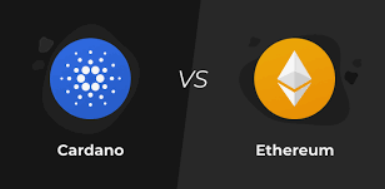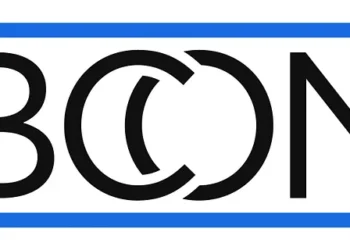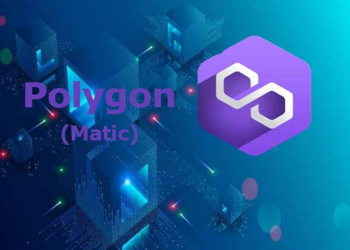Cryptocurrency enthusiasts have witnessed a surge in blockchain platforms, each claiming to offer innovative solutions and outshine its competitors. Among these contenders, Cardano (ADA) and Ethereum (ETH) have emerged as prominent players, sparking a heated debate within the crypto community. As the battle between these two giants intensifies, it’s crucial to delve into the nuances beyond the hype to understand the strengths and weaknesses of each platform.
Technological Foundations
Both Cardano and Ethereum are decentralized platforms that enable the development of decentralized applications (DApps) and smart contracts. However, they differ significantly in their technological approaches.
Cardano, founded by Ethereum co-founder Charles Hoskinson, adopts a research-driven approach. It emphasizes a scientific philosophy, incorporating formal methods and peer-reviewed research into its development. Cardano’s layered architecture aims to enhance security and scalability while maintaining a sustainable and energy-efficient protocol, a response to concerns surrounding Ethereum’s energy consumption.
Ethereum, created by Vitalik Buterin, pioneered the smart contract revolution. Ethereum 2.0, a major upgrade currently underway, aims to address scalability issues and reduce energy consumption by transitioning to a proof-of-stake (PoS) consensus mechanism. Ethereum 2.0 is expected to bring significant improvements, but it also faces the challenge of transitioning from the existing proof-of-work (PoW) system.
Scalability and Throughput
Scalability has been a persistent challenge for blockchain networks, with both Cardano and Ethereum seeking solutions.
Cardano’s Ouroboros consensus algorithm, based on PoS, promises high throughput and scalability. Its layered architecture separates the settlement and computation layers, providing flexibility and allowing for future upgrades without compromising security.
Ethereum 2.0 aims to tackle scalability by introducing shard chains, which divide the network into smaller chains, each capable of processing transactions independently. While this approach shows promise, the transition is a complex task, and its success will depend on a seamless execution.
Smart Contracts and Interoperability
Smart contracts are the backbone of decentralized applications, and both Cardano and Ethereum offer robust frameworks. Cardano employs Plutus, a language built on Haskell, and Marlowe for financial contracts. Ethereum, with its well-established solidity language, has a vast developer community and an extensive library of existing DApps.
Interoperability is another crucial factor. Cardano places a strong emphasis on creating a seamless ecosystem, allowing for interoperability with other blockchain networks. Ethereum, on the other hand, has been the go-to platform for many developers, fostering a wide-ranging network effect.
Community and Adoption
The strength of a blockchain platform often lies in its community and adoption. Ethereum, with its head start, boasts a massive and active developer community. Its established presence has attracted numerous projects, making it a pioneer in decentralized finance (DeFi) and non-fungible tokens (NFTs).
Cardano, while newer, has been gaining momentum. Its scientific approach and commitment to peer-reviewed research have garnered interest from academics and developers alike. With initiatives like Project Catalyst, which enables the community to propose and vote on projects, Cardano aims to foster a more decentralized governance model.
Conclusion
In the Cardano vs. Ethereum debate, the choice ultimately depends on individual priorities. Ethereum, with its proven track record and extensive ecosystem, remains a powerhouse. However, Cardano’s commitment to scientific rigor, scalability, and interoperability positions it as a formidable contender.
As the competition unfolds, it’s evident that both platforms are pushing the boundaries of blockchain technology. Whether Ethereum’s extensive network effect will prevail or Cardano’s innovative approach will reshape the landscape is a question that only time will answer. As investors and developers navigate this evolving terrain, one thing is certain: the Cardano vs. Ethereum debate is far from over, and the crypto community eagerly awaits the next chapter in this unfolding saga.










